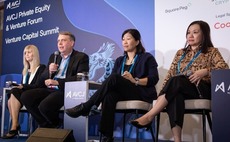
Deal focus: Allegro secures smooth TSC exit
Australia's Allegro nets a 2.4x return as Engie moves early for industrial services provider TSC Group
Allegro Funds was only a year into its investment in industrial services provider TSC Group when it found a partner that could eventually take over the business.
The Australian GP, which specializes in patching up distressed assets, led a management buyout of TSC's three constituent companies - Australia's Trilogy Building Services and Spectrum Fire & Security brands, and New Zealand's Cowley Services - in 2012, when the previous owner, Hastie Group, entered receivership.
Allegro identified the pitfalls of the previous management as an excessive focus on new construction and installation projects. This had generated impressive headlines for the business, but drew attention and revenue away from the low-key, but more reliable maintenance branch.
"We were going to make sure that the focus of the business was more on the preventive maintenance and repair side of the business, the service side," says Chester Moynihan, managing director at Allegro. "A lot less sexy, a lot more predictable - you can predict what the profit is, and then you gain your fair share of additional work by finding issues with clients' systems that you then go and repair, and so on."
To French multinational energy player Engie, TSC represented an attractive route into the Australia and New Zealand markets. The company bought a 20% stake in 2013, with a clause allowing it to transition to a 50% stake later, and eventually to take full control. As a bonus to Allegro, the purchase allowed it to return some of its investors' money early.
There was also an insurance clause: If Engie had second thoughts about following through on the full acquisition, Allegro could compel the company to sell its stake at the same time as the GP, ensuring that the eventual buyer would receive 100% of the business.
After a year of partnership, however, the partners found themselves in the happy position of doing better than expected, and Engie raised the possibility of skipping the dual-ownership phase to go directly to a full takeover. The benefit to Engie would be that it could pursue its goal of inorganic growth without having to involve a partner in the decision.
The prospect was attractive to Allegro from a financial perspective. Engie eventually agreed to acquire the remaining stake for a sum in the region of A$30-40 million, giving the GP a 40% IRR and a 2.4x return over the three-year holding period. Along with the financial rewards, Moynihan sees the exit as the best possible outcome for the partnership.
"They were known to our staff and our customers, so it made the transfer of ownership incredibly smooth when the time came to actually hand over the reins," he says. "This was a de-risking measure from their perspective. As a buyer coming into these businesses you want to try and de-risk the transition, and this completely did that."
Latest News
Asian GPs slow implementation of ESG policies - survey
Asia-based private equity firms are assigning more dedicated resources to environment, social, and governance (ESG) programmes, but policy changes have slowed in the past 12 months, in part due to concerns raised internally and by LPs, according to a...
Singapore fintech start-up LXA gets $10m seed round
New Enterprise Associates (NEA) has led a USD 10m seed round for Singapore’s LXA, a financial technology start-up launched by a former Asia senior executive at The Blackstone Group.
India's InCred announces $60m round, claims unicorn status
Indian non-bank lender InCred Financial Services said it has received INR 5bn (USD 60m) at a valuation of at least USD 1bn from unnamed investors including “a global private equity fund.”
Insight leads $50m round for Australia's Roller
Insight Partners has led a USD 50m round for Australia’s Roller, a venue management software provider specializing in family fun parks.






